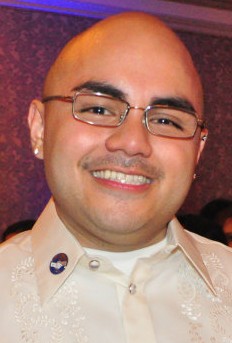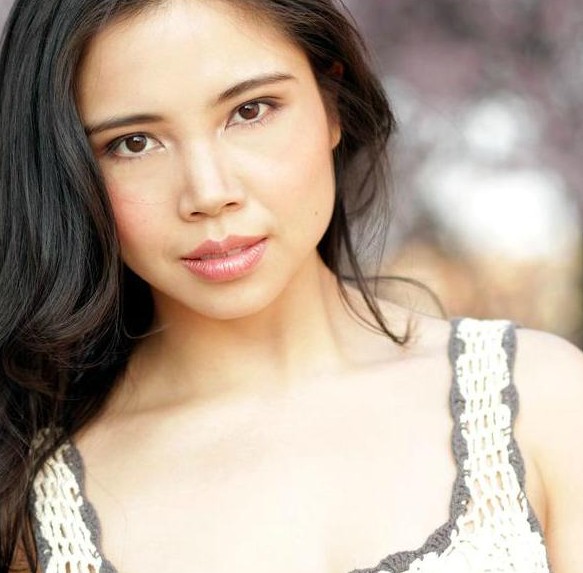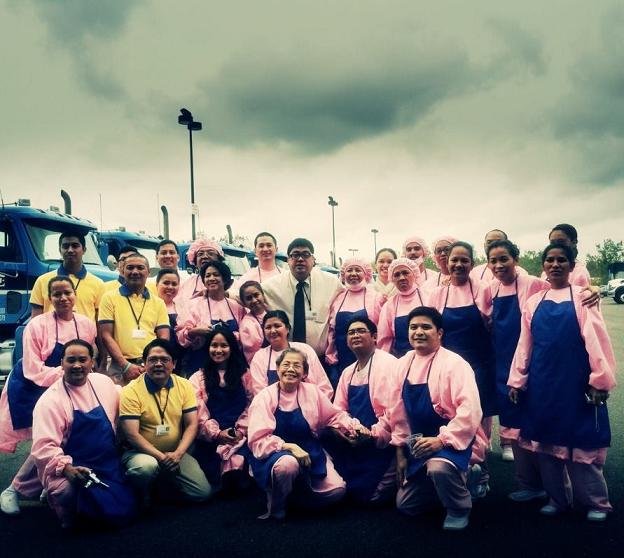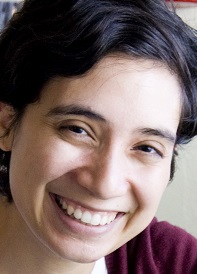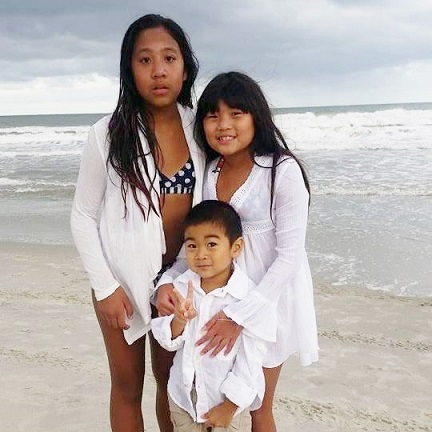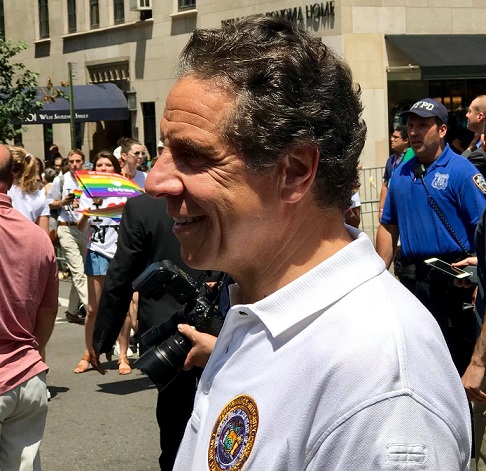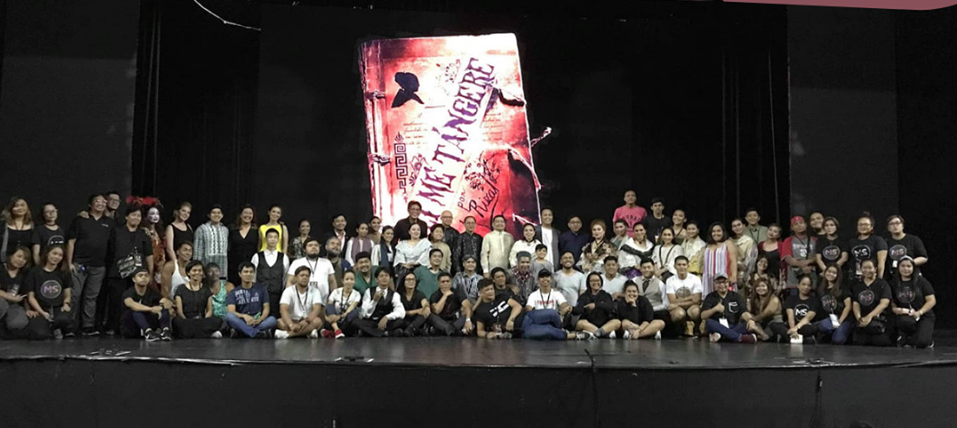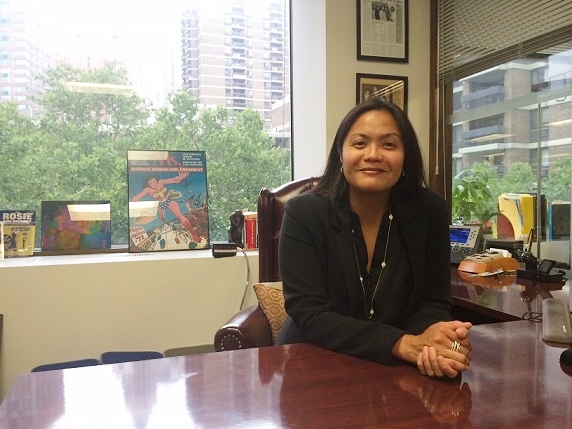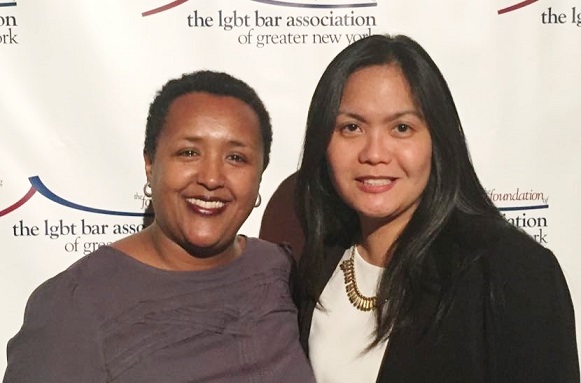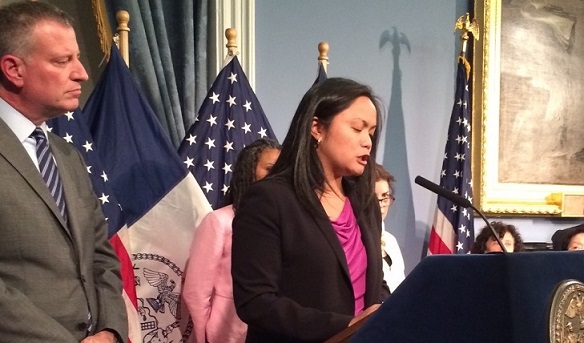Human Rights Commissioner Carmelyn Malalis on family, Faith and a passion to fight vs discrimination
By Cristina DC Pastor“There’s another Pinay!”
Carmelyn Malalis got this welcome shoutout from two Filipinas who were earlier appointed to the De Blasio Administration: President of Economic Development Corporation Maria Torres-Springer and Chief Technology Officer Minerva Tantoco.
“After I was appointed, I received an email basically welcoming me to the fold. Let’s do a Lumpia Night to welcome you,” Malalis said in an interview with The FilAm.
And so three of the most dynamic and powerful Filipino women in New York City got together for plates of spring rolls and hours of chitchat about working in City Hall, growing up FilAm, and motherhood. “It was just wonderful,” she said.
Born in New Jersey, Malalis grew up in the central part, in a town called Carteret. She and an older sister were raised by traditional Filipino parents. Her father, a chemical engineer, and her mother, a doctor, came to the U.S. in late 1960s, a generation she calls the “Asian Brain Drain.”
“There was some shortage of doctors and engineers at the time, when all these professionals, whether they’re from the Philippines or other Asian countries, in the sciences came to the States. Growing up I remember in college talking to Filipinos and other Asians and how our parents were part of that pathway,” she recalled.
She went to a Catholic school in Carteret from kindergarten to middle school. For high school, she attended a private school in a nearby town, Edison.
In 2001, she earned her J.D. from the Northeastern University School of Law in Boston, adding another academic credential to her undergraduate degree in Women’s Studies from Yale University.
Telling her parents she was queer was a moment she clearly remembers.
“I came out to my parents when I was 16.”
Malalis was speaking through a severe thunderstorm, somewhat muted because we were inside her office in Lower Manhattan. I was momentarily distracted by a slice of lighting that flashed through the wide window behind her, but careful to catch every word that poured out within minutes of our interview. Her Director of Communications sat nearby.
“If you look back to what kind of year that was,” she paused briefly, “it’s a different time now than it was then for a child of 16 coming out.”
She has always relied on family and faith.
“I’ve often talked about the complexities of being Catholic and also being a lesbian, as folks have said, how does that work?” cutting short her laughter as she explained how her religion has made her into a well-grounded person.
She remains, she said, steadfast in her devotion to the Virgin Mary, specifically Our Lady of Fatima, and remembers how her family has honored the tradition of passing the blue-and-white robed Fatima statue from one Filipino household to the next. “My parents still do that,” she said.
“I often credit my parents’ reactions. Something I do associate with being Filipino and being Catholic, though it’s not exclusive to Filipinos or Catholics of course, is their enduring love for me. I don’t think that they had any basis of experience of how to react to it or talk about it. It was really challenging for them, but we’ve worked through it,” she beamed.
Malalis and her spouse, Lule Demmissie, an executive at TD Ameritrade, are raising two biracial daughters ages 5 and 2. Demmissie is of Ethiopian ethnicity.
“In raising my two daughters, I hope my wife and I can instill an enduring sense of self-esteem and confidence in them that will help protect them when they’re young and empower them as they get older,” she says in Chirlane McCray’s blog FLONYC.
As chair and commissioner of the NYC’s Human Rights Commission, Malalis brings more than a decade of experience and law practice from the time she was a law clerk for Judge Ronald Ellis of the United States District Court for the Southern District of New York and an associate at Sullivan & Cromwell LLP. In 2004, she joined Outten & Golden LLP, where she co-founded and co-chaired the firm’s Lesbian, Gay, Bisexual and Transgender Workplace Rights Practice Group and co-chaired its Disability and Family Responsibilities Discrimination Practice Group. At Outten, she represented employees in negotiations and litigations involving claims of sexual harassment, retaliation, and discrimination based on race, national origin, sex, gender identity, gender expression, sexual orientation, age, pregnancy, disability, and religious discrimination.
“Malalis has a dedicated history of combating prejudice, intolerance, discrimination and harassment through her representation of employees from a variety of industries and income levels, work with employers’ advocates, and collaborations with community groups, non-profit organizations and bar associations,” says a statement from Mayor Bill de Blasio announcing her appointment in November 2014.
She took office three months later in February.
Her mandate is broad and important, she pointed out.
Human rights, by the city human right law definition, guarantees protection for individuals from discrimination across several different areas, including on race, color, creed, age, national origin, alienage or citizenship status, gender, gender identity, sexual orientation, disability, pregnancy), marital status, and partnership status.
Within her first few months, the City Council passed five new laws that affect her agency. One of the laws makes it illegal for most employers to discriminate on the basis of an applicant’s credit history. Another makes it a violation to ask about an applicant’s criminal background before a conditional offer of employment is made.
“These are two very important laws,” she stressed. “Sea change laws.”
One of the commission’s mandates is to work with different communities across the city, which it does through the five borough-based Community Service Centers of its Community Relations Bureau, and another is prompt law enforcement action. Another part of her mandate she is proud of is how the commission “of its own volition” can investigate issues even without someone coming forward to file a complaint.
Malalis said the commission has been in the process of aggressively building relationships with various communities, such as faith-based communities, communities of people with disabilities, communities of folks focused on LGBT rights, and ethnic communities, among others. The outreach seeks to create awareness of anti-discrimination laws and how, essentially, New Yorkers should treat people with mutual respect and dignity.
She said, “One of the reasons I left the private sector to do this work with this administration is because this administration has a strong belief in equity, strong belief in equality and a strong belief in impact. I want to have impact, and impact means being effective in anti- discrimination education and enforcement areas. It also means pushing the law further into other avenues.”

